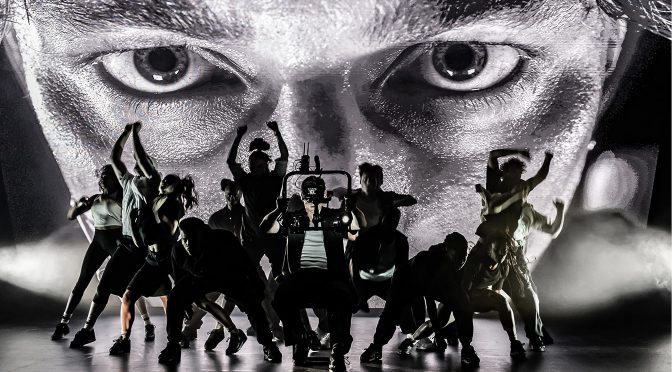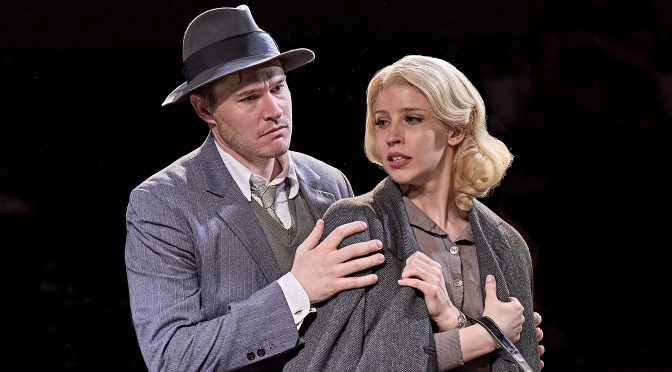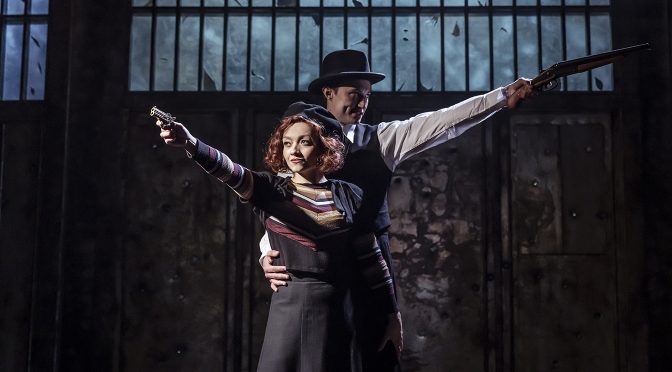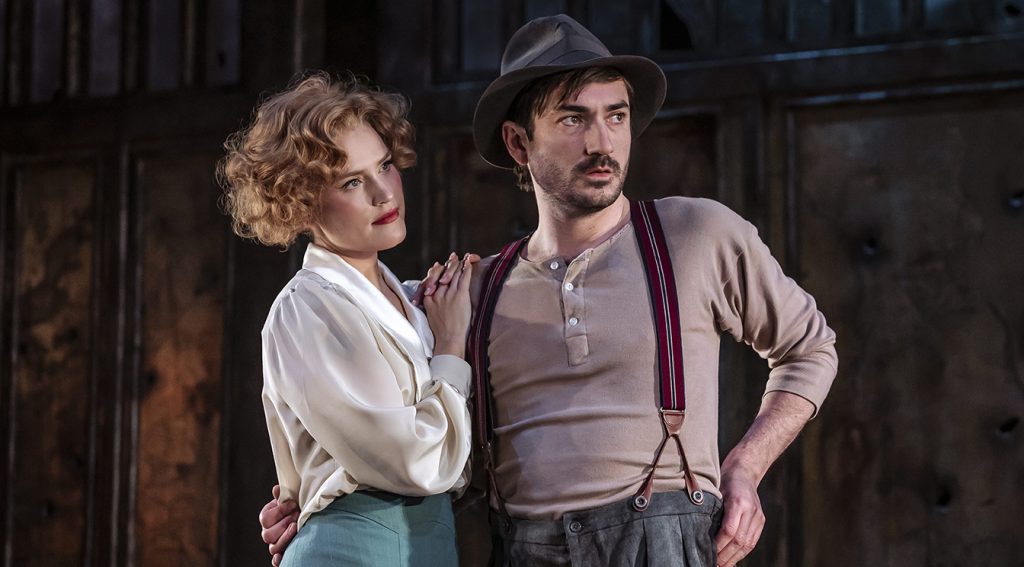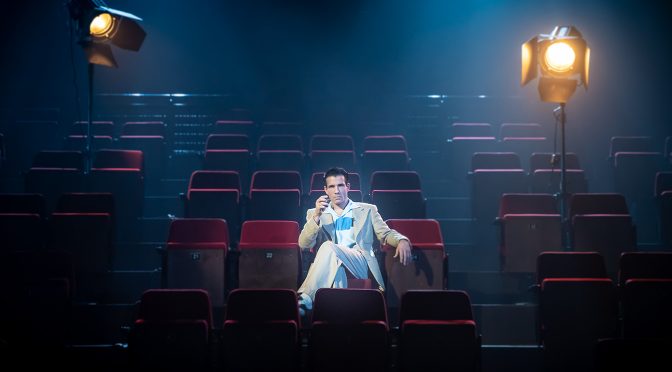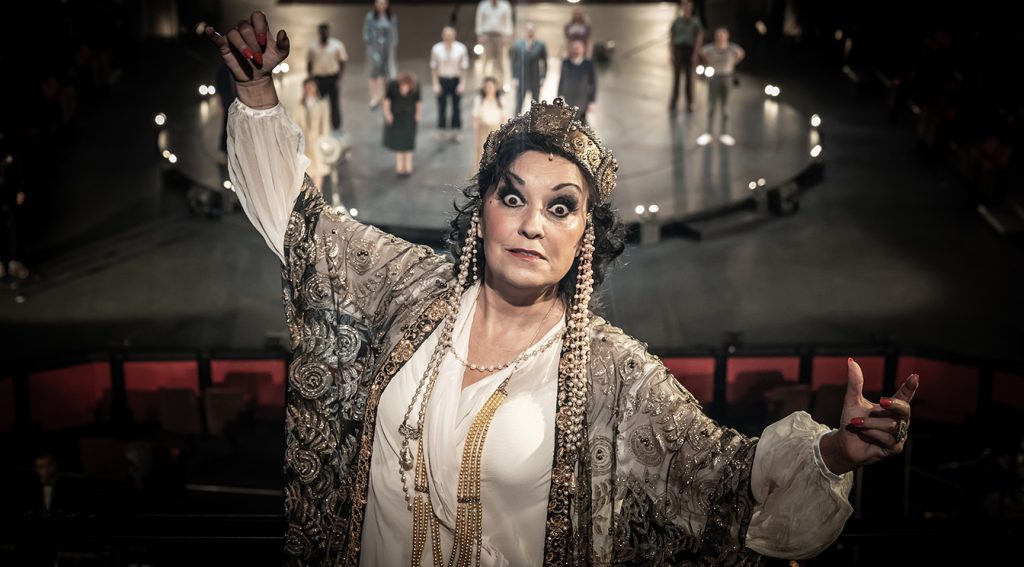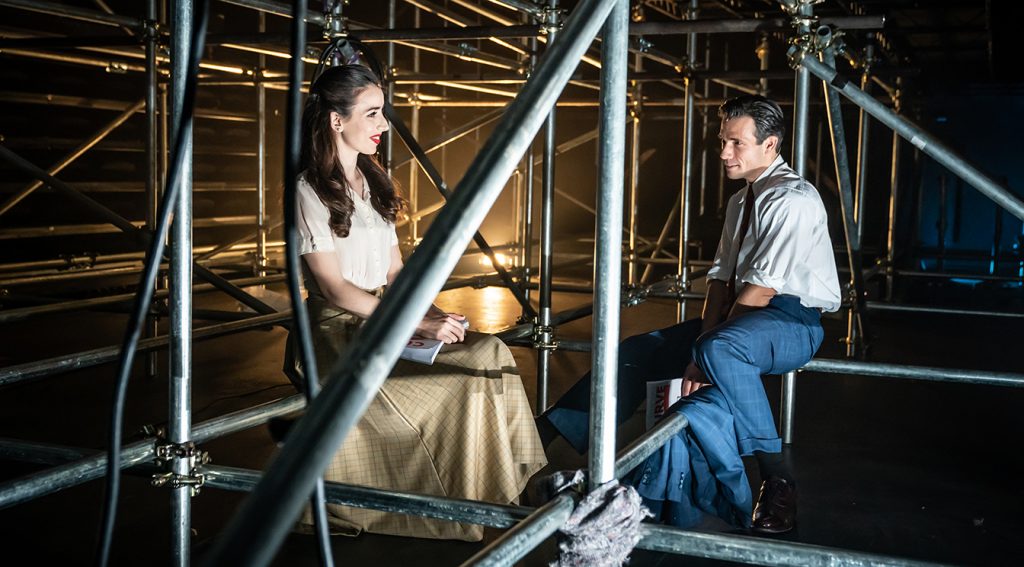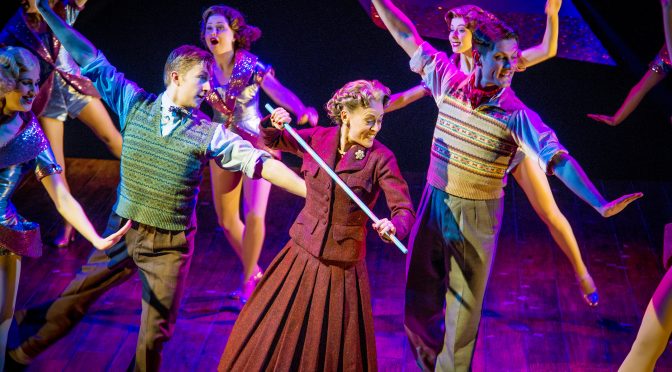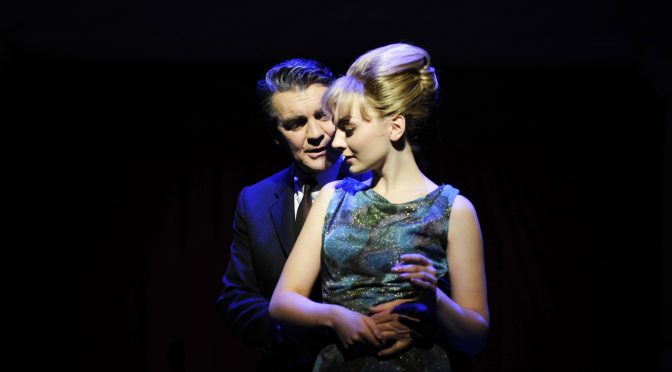Everything about Jamie Lloyd’s new production of Andrew Lloyd Webber’s 1993 musical is exciting. Everything. Lloyd is one of the smartest directors around: never scared of entertaining, thrilling and challenging an audience – and here, everything he has touched benefits.
First, the piece. Lloyd has tackled Lloyd Webber before, with Evita, and it is a thrill to find such a bold director finding a West End hit so credible. The score for the tragic romance between former silent film star Norma Desmond and impoverished writer Joe Gillis sounds big – powerful and sensuous – Alan Williams’ work as musical director is fantastic.
Lloyd takes the book and lyrics by Don Black and Christopher Hampton seriously, too: the presentation is clear and nuanced and you can’t fault delivery of a single line. Norma’s attempt to return to work and Gillis’ romance with another writer are both explored in depth. I only spotted one omission, a lighter number called ‘The Lady’s Paying’, and the absence is telling. Sunset Boulevard is a dark piece – it’s about a murder, after all. The camp appeal of the show is allowed but carefully controlled.
The staging is startling. Soutra Gilmour’s design has no props and no set. Instead, Lloyd sets up a dialogue with the medium of film and the resulting designs for lighting and video, from Jack Knowles, Nathan Amzi and Joe Ransom, are breathtaking. It’s too simple to say noirish, although the references are clear. And it isn’t just that these designs aid the drama. Desmond and Gillis are conscious of the spotlight and that they are being filmed (they work in the movies, after all, and Gillis is narrating events). There is a lot of live filming here – a huge technical accomplishment – on a massive screen. And while the idea has been popular for a while, even taking us outside the theatre at one point, Lloyd shows himself as a master of this.
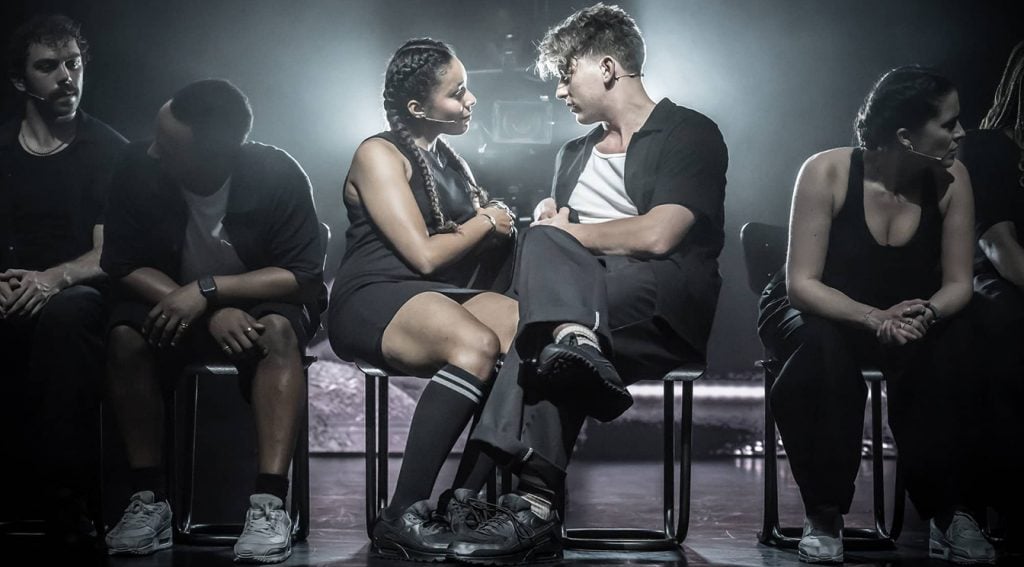
All this and no mention of the cast – all of them stars, each bringing more excitement. This is a large ensemble, Fabian Aloise’s bold choreography is in keeping with the production’s stark drama, creating fragmented imagery that recalls an old movie and adds focus along with a sense of foreboding.
Tom Francis and Grace Hodgett Young play the younger leads. They have slim credits between them, but both performances are justifiably confident. They sound great, act with skill and, given Lloyd’s unerring eye for talent, you can’t wait to see what they do next. While Francis has the bigger part – and tackles his role with great subtlety – Hodgett Young leaves a big impression, showing a sweet heroine who isn’t a pushover.
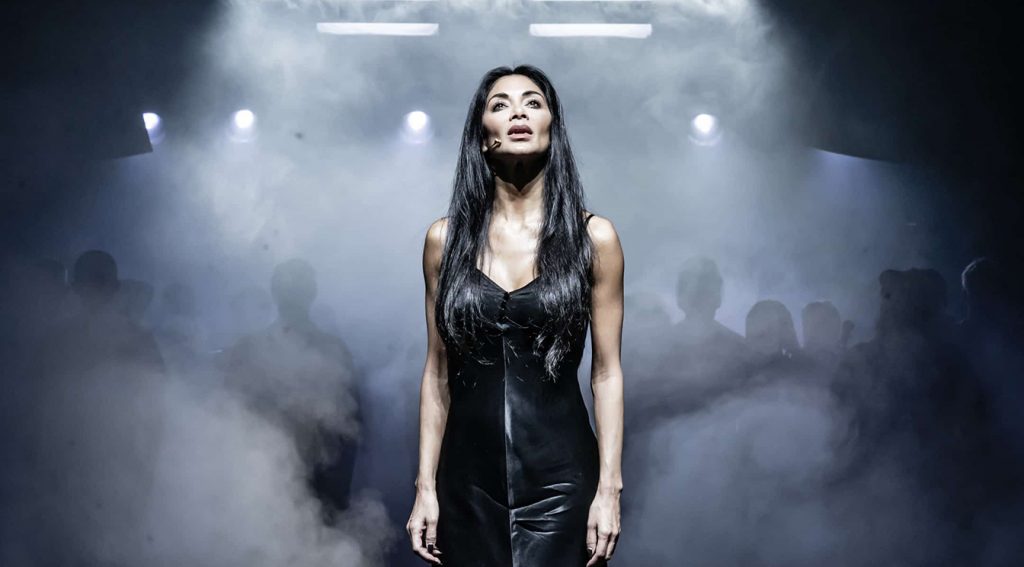
Finally, Nicole Scherzinger takes the lead as Desmond and gives a performance that will surely change her career. Scherzinger has a powerful voice and knows how to use it. She can belt out a note, but only at the right moment. She gets what Lloyd is doing, using the cameras for fun, drawing the focus to her face. Boldly, some iconic lines are, almost, thrown away. This is a brave performance, with Scherzinger never scared of looking the fool and becoming vulnerable – and moving – as a result. A finale that turns the action into something like a horror film is stunning. Scene after scene, Scherzinger and Lloyd surprise and excite.
Until 6 January 2023
www.sunsetboulevardwestend.com
Photos by Marc Brenner

